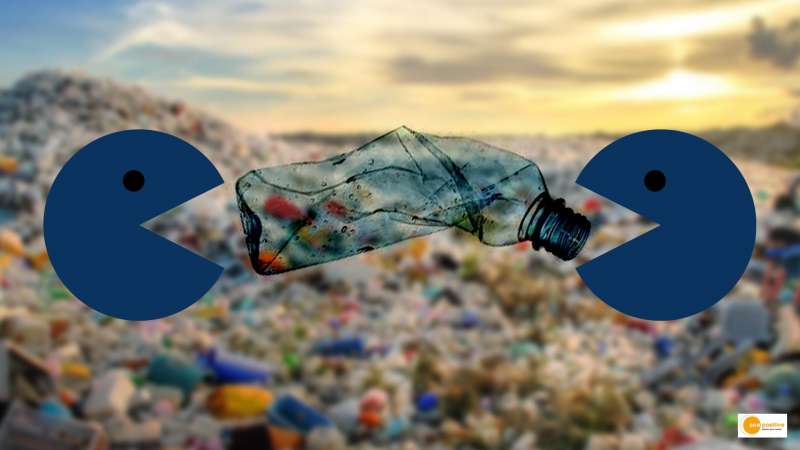

The Earth has a plastics problem, and there aren’t many good solutions. Food, toiletries, and cleaning products are packaged in plastic; our toothbrushes, children’s toys, and disposable coffee lids are made of plastic; and we carry groceries and dispose of trash in plastic bags.
It’s impossible to escape
However, we rarely consider the fact that these items will be around for hundreds of years. That’s right—your old toothbrush, which you threw away a few months ago and never thought about again, will still be slowly decomposing in a landfill in 100 years.
Apply the same logic to all of the plastic in your home, then to all of the plastic in the world, and… It’s a lot.
Plastic’s durability is one of the reasons it is so useful. On the other hand, it’s extremely difficult to get rid of. A team of scientists from the University of Texas at Austin is developing a tool that could be useful: an enzyme that can break down plastics in just a week—plastics that would otherwise take centuries to degrade.
Polyethylene terephthalate, or PET for short, is a clear, strong, lightweight plastic that is also the chemical name for polyester. PET is most commonly used in the packaging of food and beverages (it was definitely in the last disposable bottle of water you drank). As a result, according to a paper published last week in Nature by the UT team, this type of plastic accounts for 13% of all plastic waste in the world.
One thing we can do is break this down into its initial monomers,” Hal Alper, one of the paper’s authors, told Motherboard.
“And that’s exactly what the enzyme does.” Once you have your original monomer, it’s as if you’re making new plastic from scratch, with the added benefit of not requiring additional petroleum resources.
To recap, a monomer is a molecule that binds to other molecules to form a polymer, which is a repeating chain of molecules. Depolymerization is the process of breaking down a polymer into its original molecular components. Those components can then be recycled to produce… new plastic.
It seems counter-intuitive; aren’t we trying to reduce our reliance on plastic?
Unfortunately, making less isn’t an option until we find suitable replacements, because people still need to buy detergent, juice, and shampoo. The UT team’s depolymerization method, on the other hand, is essentially just a purer form of recycling—and an actual form of recycling, because only a fraction of what you throw in the blue bin with the arrows ends up being recycled.
Enzymes that degrade plastic can be found in naturally occurring bacteria, but they only do so in very specific temperature and pH environments. The UT researchers trained a machine learning algorithm to predict the positions of amino acids in protein structures and tested various sequences to find one that worked at different temperatures and pH levels.
The resulting enzyme was named FAST-PETase, which stands for “functional, active, stable, and tolerant PETase.” It can degrade 51 different types of plastic in non-specific temperature and pH conditions, and complete degradation took less than eight days overall.
The next step is to determine how to scale the process in an efficient and cost-effective manner
The world’s plastic problem, like the climate crisis—and it is very much a part of the climate crisis—will not have a single solution. Whatever solutions we find, it’s critical to begin weaning ourselves off plastic by substituting viable and sustainable alternatives.
Given that we already have mountains of it, an enzyme that can quickly break it down sounds like a useful tool.


